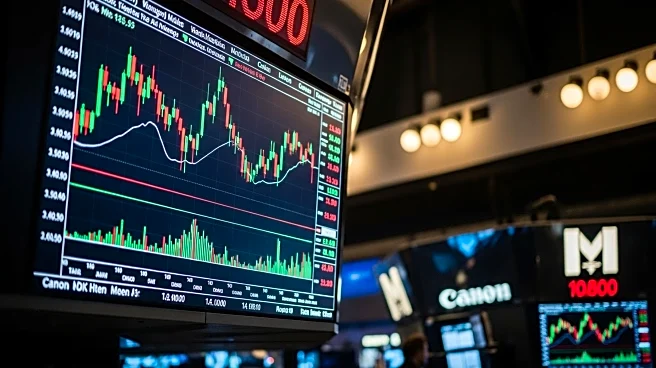What's Happening?
The U.S. government shutdown is a major concern for investors as the stock market approaches the fourth quarter, traditionally a strong period for equities. The shutdown, caused by a partisan rift in Washington, threatens to delay crucial economic data, potentially affecting the Federal Reserve's policy decisions. Despite these concerns, the S&P 500 has reached record highs, driven by strong corporate earnings and resilience in the face of trade and tariff challenges. Analysts expect S&P 500 companies to report an 8.8% increase in third-quarter earnings, up from earlier forecasts. Investors are closely monitoring the situation, with the shutdown expected to dominate focus in the absence of major data releases.
Why It's Important?
The government shutdown could have significant implications for the U.S. economy and stock market. Delayed economic data may create uncertainty around the Federal Reserve's monetary policy, potentially impacting interest rates and economic growth. The shutdown's duration will be crucial, as prolonged delays could hinder economic recovery and market stability. Investors are optimistic about the fourth quarter, historically a strong period for stocks, but the shutdown poses a risk to this outlook. The situation underscores the importance of political stability in maintaining economic momentum and investor confidence.
What's Next?
Investors are awaiting the release of the Federal Reserve's September meeting minutes, which may provide insights into future rate cuts. The shutdown's resolution is critical, as a prolonged impasse could lead to further economic uncertainty. Companies like Levi Strauss and Delta Air Lines are set to report earnings, offering a glimpse into corporate performance amid the shutdown. The market's response to these developments will be closely watched, with potential implications for future growth and investment strategies.
Beyond the Headlines
The shutdown highlights the broader issue of political polarization and its impact on economic policy. The delay in economic data could lead to increased reliance on private sector reports, affecting the accuracy of economic assessments. The situation may also influence public perception of government effectiveness, potentially affecting voter sentiment and future elections.










